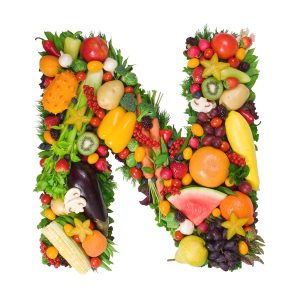The Science of Nutrient-Rich Eating
Nutrient-rich eating is at the forefront of modern nutritional science, emphasizing the consumption of foods that provide a high concentration of essential nutrients while minimizing empty calories. This dietary approach is rooted in the understanding that our bodies require a diverse array of vitamins, minerals, antioxidants, and macronutrients to function optimally and maintain overall health. A nutrient-rich diet prioritizes whole, unprocessed foods such as fruits, vegetables, lean proteins, whole grains, nuts, and seeds. These foods are rich in vitamins like A, C, and K, minerals such as calcium and magnesium, and essential nutrients like fiber and protein. Consuming a variety of nutrient-dense foods not only provides the raw materials necessary for bodily functions but also supports immune function, helps manage weight, and reduces the risk of chronic diseases such as heart disease, diabetes, and certain cancers. One key aspect of nutrient-rich eating is the concept of micronutrients, which are vitamins and minerals that our bodies need in small quantities but play critical roles in various physiological processes.
For example, vitamin D is essential for bone health and immune function, while antioxidants like vitamin C and beta-carotene help protect cells from damage caused by free radicals. By including a wide range of colorful fruits and vegetables in our diets, we can ensure we are getting an array of these micronutrients. Fiber is another essential component of nutrient-rich eating. Found in foods like whole grains, legumes, fruits, and vegetables, dietary fiber not only aids in digestion but also helps maintain healthy cholesterol levels and stabilizes blood sugar, reducing the risk of chronic diseases like type 2 diabetes and heart disease. Additionally, fiber promotes a feeling of fullness, which can aid in weight management by preventing overeating. Protein is another vital nutrient that supports muscle growth, tissue repair, and the production of enzymes and hormones. Lean protein sources like poultry, fish, tofu, and legumes offer a high nutrient-to-calorie ratio, making them excellent choices for those looking to increase their protein intake without excess calories.

The science of nutrient-rich eating also underscores the importance of balance and moderation. While it is crucial to prioritize nutrient-dense foods, occasional indulgences in less nutritious options can be a part of a healthy diet Alles over voeding. The key is to make these indulgences the exception rather than the rule. A diet that primarily consists of nutrient-rich foods provides the foundation for health, while occasional treats can add enjoyment to our eating experience. In conclusion, the science of nutrient-rich eating is a cornerstone of modern nutrition, emphasizing the importance of consuming foods that provide essential nutrients in abundance. This approach promotes overall health, reduces the risk of chronic diseases, and supports optimal bodily functions. By incorporating a diverse range of nutrient-dense foods into our diets and paying attention to factors like micronutrients, fiber, and protein, we can make informed choices that nourish our bodies and enhance our well-being.
